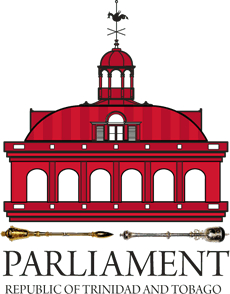There are currently 28 definitions in this directory.
abstention
Refusal to vote either for or against a motion. A Member is not obliged to vote and if he abstains, the records of the House will reflect his abstention.
Act of Parliament
A bill which has been passed by both the House of Representatives and the Senate, has received Presidential Assent. Unless a provision of the Act specifies otherwise, the Act comes into force on the date of Assent.
adjournment of debate
Often a dilatory tactic which may be employed to delay progress on a particular matter. If a motion to adjourn a debate is adopted, the item is not dropped from the Order Paper but may be taken up again on a later day.
adjournment of the House
The termination by the House of a sitting (either by motion or pursuant to a Standing or Special Order) within a session. An adjournment covers the period between the end of one sitting and the beginning of the next. The House may adjourn for a few minutes or for several months.
admonition
A stern warning by the Speaker/President of the Senate to an offender. Compare: reprimand.
affirmative resolution
In an Act, this expression, when used in relation to a regulation, means that the regulation shall be laid before both Houses, or the House of Representatives as the case may be, within the prescribed period of time and shall not come into force unless and until it is affirmed by a resolution passed by both Houses, or the House of Representatives as the case may be. Compare: negative resolution.
amending Act
An Act of Parliament whose sole purpose is to modify another Act or Acts which are already in force. Restrictions exist on the type of amendments that may be proposed to bills leading to amending Acts.
amendment
An alteration proposed to a motion or clause of a bill or to a committee report. It may attempt to present an improved formulation of the proposition under consideration or to provide an alternative to it.
ancillary motion
A subsidiary motion, such as a motion for the second reading of a bill dependent on an order already made by the House.
appropriation
A sum of money allocated by Parliament for a specific purpose outlined in the Annual Budget.
appropriation bill
A bill to authorize government expenditures, which must be first introduced in the House. Synonym: supply bill.
Auditor General
An Officer responsible for the independent examination of the Government's accounts. Reports of this examination are tabled regularly in both Houses and referred by the House of Representatives to either the Public Accounts Committee or the Public Accounts (Enterprises) Committee, as the case may be.
backbencher
A Member who is not a Presiding Officer, a Government Minister or a Parliamentary Secretary. See also: private Member.
bar (of the House)
A barrier inside the Chamber beyond which uninvited officials, the Media and other non-Members may not be admitted.
bicameralism
A legislative body comprised of two chambers or Houses. The House of Representatives and the Senate are the two Houses of Trinidad and Tobago's Parliament.
bill
A proposed law submitted to Parliament for its approval. It may originate either with the Government, with a private Member or with a private body and may relate either to public or private interests. Bills may be first introduced in either the House or the Senate, but bills for appropriation of public revenue or for taxation must be introduced in the House of Representatives by a Minister.
breach of privilege
An infringement of one of the specific privileges of the House or its Members which prevents them from carrying out their functions. The House is asked to deal with an alleged breach only when it appears to the Speaker/President of the Senate to be evident (prima facie).
budget
The Government's statement of its fiscal, economic and social policies. It is presented once a year.
budget debate
A debate on a motion approving the Government's budgetary policy. The motion is moved by the Minister of Finance following the presentation of the budget speech. Compare: budget debate. Distinguish: budget. Synonym: budget presentation.
business of the House
Any question, motion or bill which is placed before the House, whether introduced by a minister or by a private Member.
by-election
An election held to fill a vacancy arising during the course of a Parliament. The date of the by-election is fixed by the President. Compare: general election.
Cabinet
The executive of the Government, consisting of those MPs and Senators appointed by the President on the advice of the Prime Minister. It is responsible for the administration of the Government and the establishment of its policy.
Cabinet minister
A member of the executive, appointed by the President on the advice of the Prime Minister. Chosen from among existing MPs and Senators, Ministers are responsible to Parliament for their official actions and those of their Departments. Cabinet Ministers are given the title "Honourable". Synonym: Cabinet member.
Cabinet solidarity
The principle that decisions of the Cabinet must be supported by all of its members; by convention, those not supporting a decision must resign from the Cabinet. Compare: ministerial responsibility; responsible government.
casting vote
The deciding vote accorded to the Speaker/President of the Senate (or, in committee, to the chairman) in the event of a tie. The Speaker/President of the Senate or chairman may vote only in order to avoid a deadlock, and traditionally votes so as to maintain the status quo.
